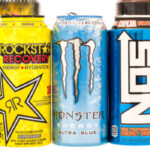Holiday seasons are full of parties and events, celebrations and festivities. At most of these gatherings, we can expect there to be alcohol. Men who are in their first year of recovery might find themselves challenged by the amount of alcohol around them or the drink offers being made. You might not have told everyone you’re in recovery now. Men are less likely than women to speak up about their troubles with alcohol because the shame, stigma, and stereotype of the male masculine identity prevents it. Alcoholism, even sustained sobriety and recovery from alcoholism, ‘looks’ like ‘failure’ to men and they do not want to discuss it openly. People who know you, or people who don’t know you, might be confused by your refusal to drink. All kinds of protests can come out, especially during the holidays.
“It’s not what happens to you, but you react to it that matters,” said the great stoic Epictetus in The Enchiridion. Being offered alcohol is common, particularly during the holidays. Our recovery is not based on whether or not we are offered alcohol. The mark of our recovery is in how we handle the offer. In our earlier months, we might experience physical symptoms that surprise us, like a racing heart, a bit of adrenaline, and even salivation at the mouth. Alcoholism trains the brain to crave alcohol both psychologically and physically. With a head full of recovery, it is not uncommon to still experience physical symptoms of craving at the offer because the last drink is not too far away.
What we choose to do with our words, thoughts, and behaviors defines the man we are becoming in our recovery. “When something happens,” Epictetus wrote, “the only thing in your power is your attitude toward it; you can either accept it or resent it.” If we view being offered a drink as something to abhor or something to fear, we change our perception. Epictetus spoke to this matter, “Men are disturbed not by things, but by the view which they take of them.”
There is a difference between a responsive and assertive “No thank you” or a reactive and aggressive “Get off my back”. Honesty is the best policy in recovery and there is no harm in statements such as “I’m not drinking” or even “I don’t drink anymore”. Being offered a drink is not a personal offense. Even if someone knows you are in recovery, your recovery is your responsibility to sustain. “Try not to react merely in the moment,” Epictetus advised. “Pull back from the situation. Take a wider view. Compose yourself.” Then, he suggests, “Consider the bigger picture.”
Tree House Recovery is a men’s treatment program located in Portland, Oregon. Creating sustainable recovery through sustainable change, our programs help men learn how to live sober with adventurous lives. Call us today for information: (503) 850-2474




